

Investigating in the world of shipping
is like opening a Pandora’s box.
On one hand is the perfect example of multiculturalism since a vessel can concentrate many different nationalities in its 200-400 meters of length: for instance, the cargo can belong to an American company and transported in Chinese containers, while the ship itself could be owned by French, crewed by Indians, sailing under the Panama flag and heading to an Italian port.
On the other hand the particular mix of identities leads to confusion for which jurisdiction and law to apply if sailing in international waters. Several cases of cabotage (transport of goods or people within the country’s borders by foreign ships), use of off-shore registers (less restrictions, fees to pay and shipping inspections, with a consequent underpaid staff), change of flag for trading and so on, have been denounced through online news.
The situation is so complicated that even some States themselves have reported to the International Maritime Organisation cases of fraudulent use of their flags or illegally registered ships, which were involved in illicit activities. The IMO secretariat is working on the implementation of measures to prevent unlawful practices: the completion is targeted in 2021.
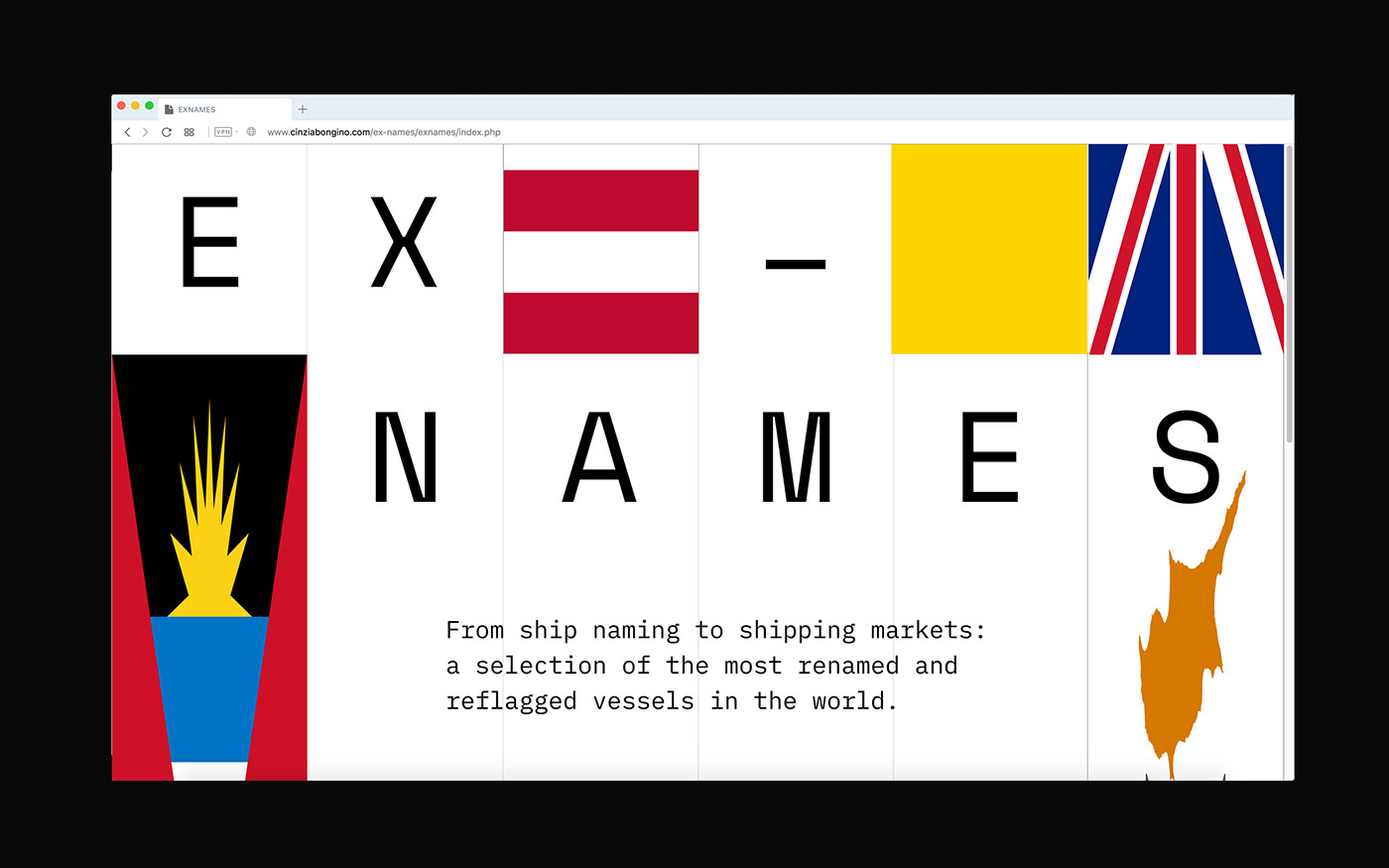
This >>> website visualises a common practice among the vessels: the change of name and register. Here are presented a selection of 10 vessels that changed identity very often in recent years, listed until March 2019.
Every vessel has its own identification number: why so many changes of names too?
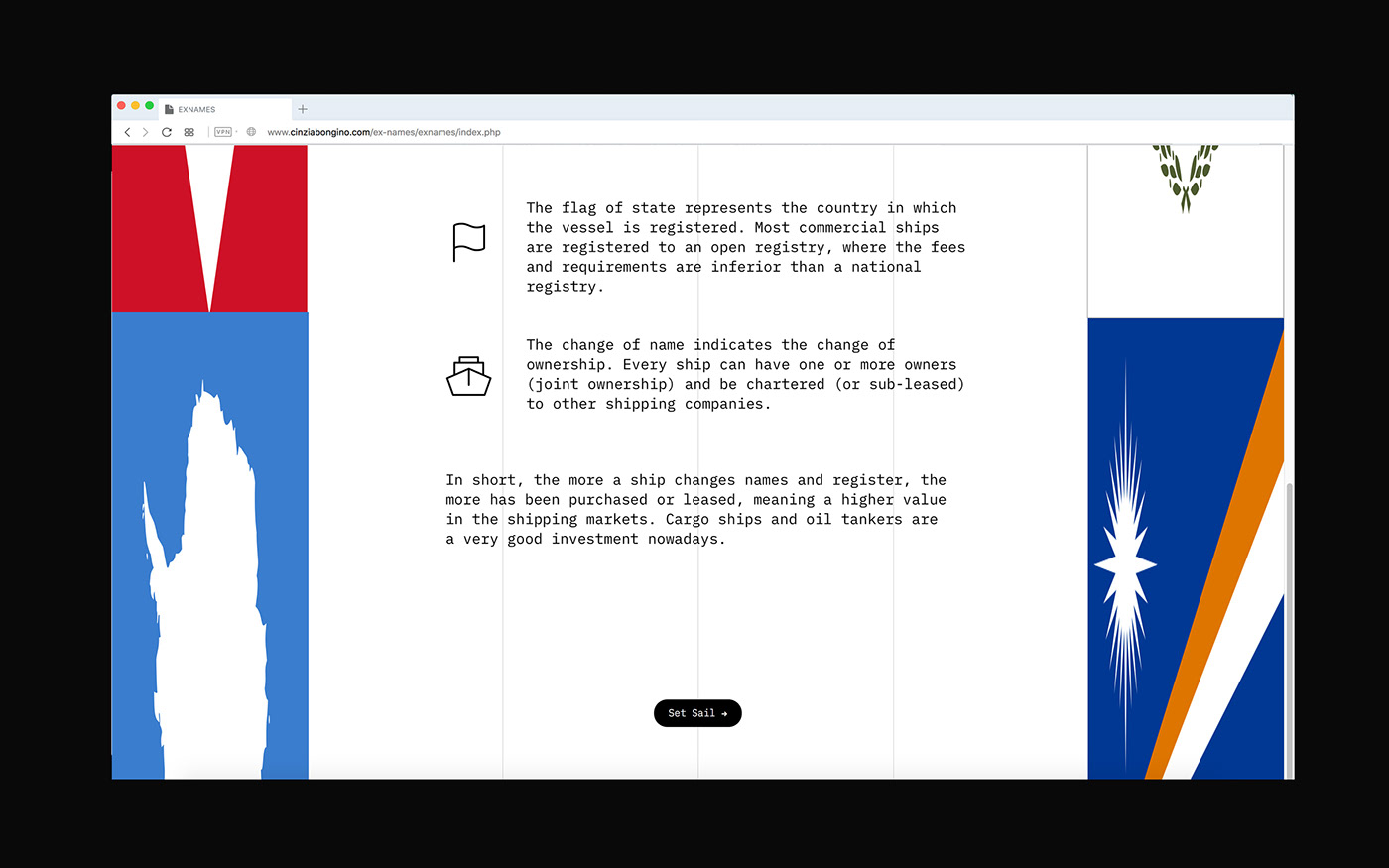

This legenda explains how to read the website: the black label states the register and the name of the vessel, in a specific day, month, year.



Creating a "flag of flags" is a way to reconstruct the identity of a ship: by putting together the change of register (flag state) and name (ownership) it is possible to visualise the number of owners and countries of registration of the vessel. The length of each flag represents the period of time the ship sailed under a specific jurisdiction.

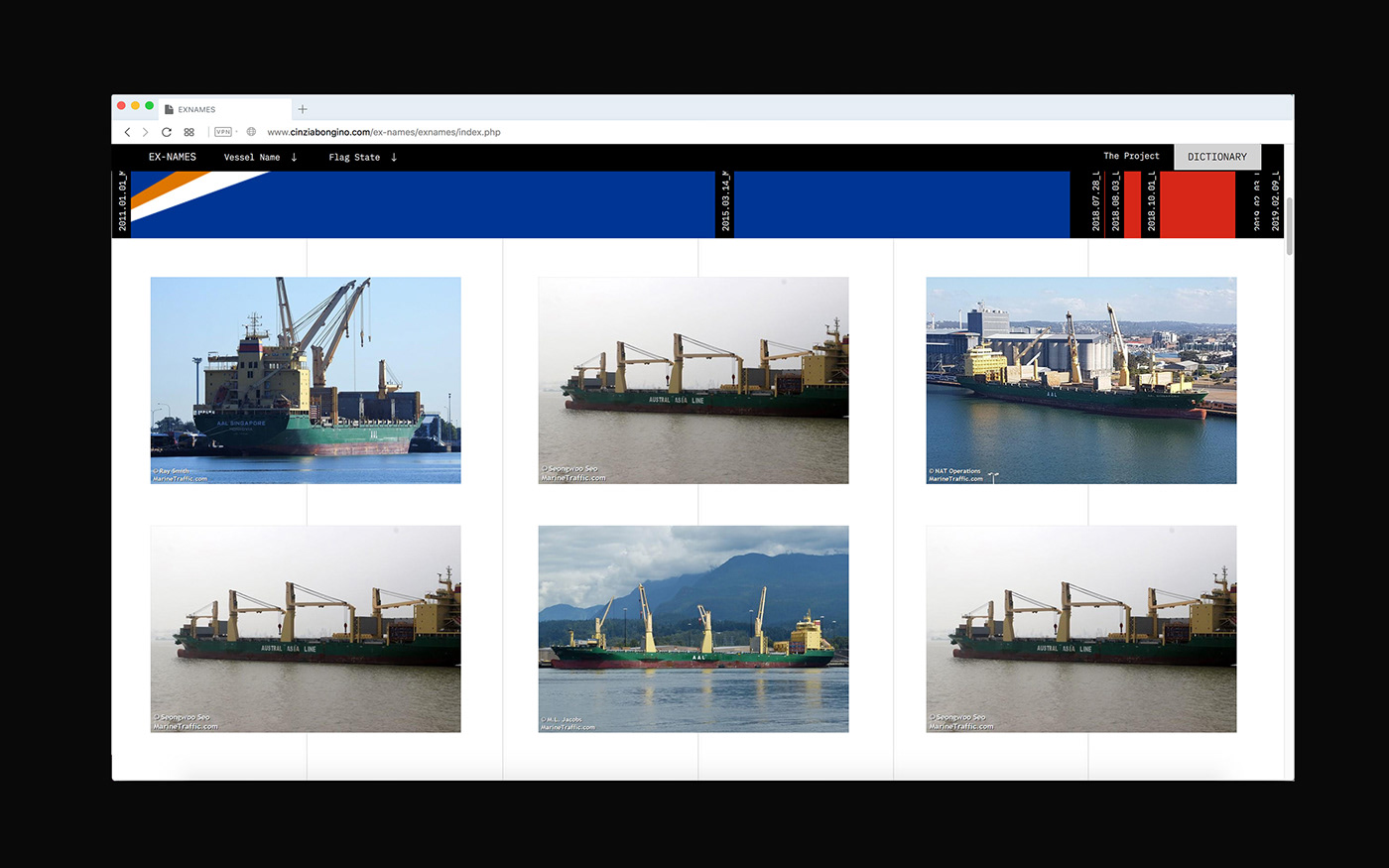
The name of the ship must be painted it on the hull, but it is not so easy if it changes every day (or even more times during the same day).

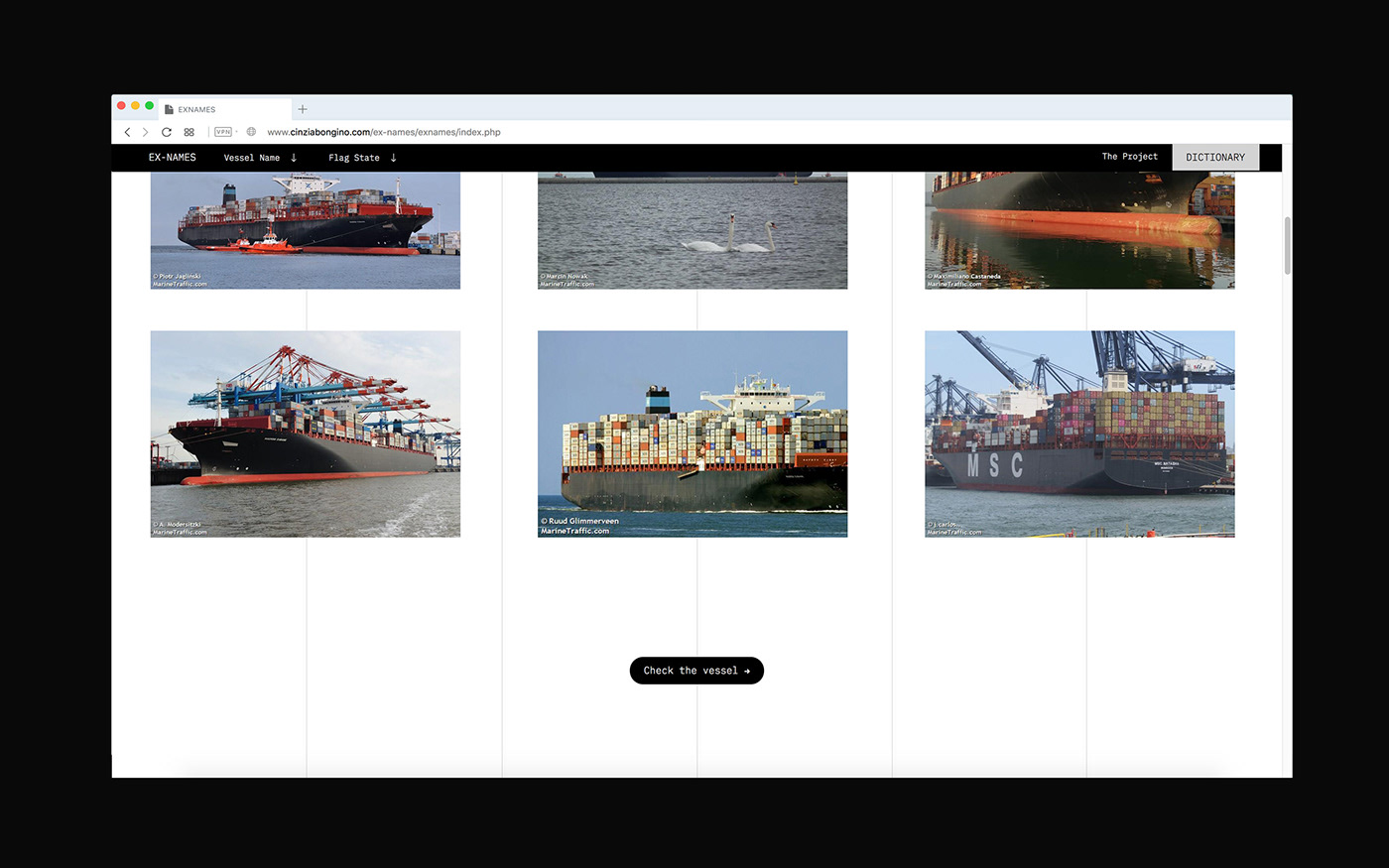
The data are collected from the platform >> Marine Traffic: by clicking the black button you can cross-check the information under the Ex-Names History panel.


The flag state is the jurisdiction under whose laws the vessel is registered or licensed, and is deemed the nationality of the vessel. The flag state has the authority and responsibility to enforce regulations over vessels registered under its flag, including those relating to inspection, certification, and issuance of safety and pollution prevention documents. Following the article 5 of the Geneva Convention on the High Seas of 1958, there must be a “genuine link” between a vessel and its flag state.


A register that is open only to ships of its own nation is known as national register, and requires that a ship be owned and constructed by national interests and at least partially crewed by its citizens.
Registers that are open to foreign-owned ships are known as open registers and are sometimes called flags of convenience: they don’t have the same requirements and can offer a fast online registration, favourable taxation and liability protections under a stable fiscal and legal system.



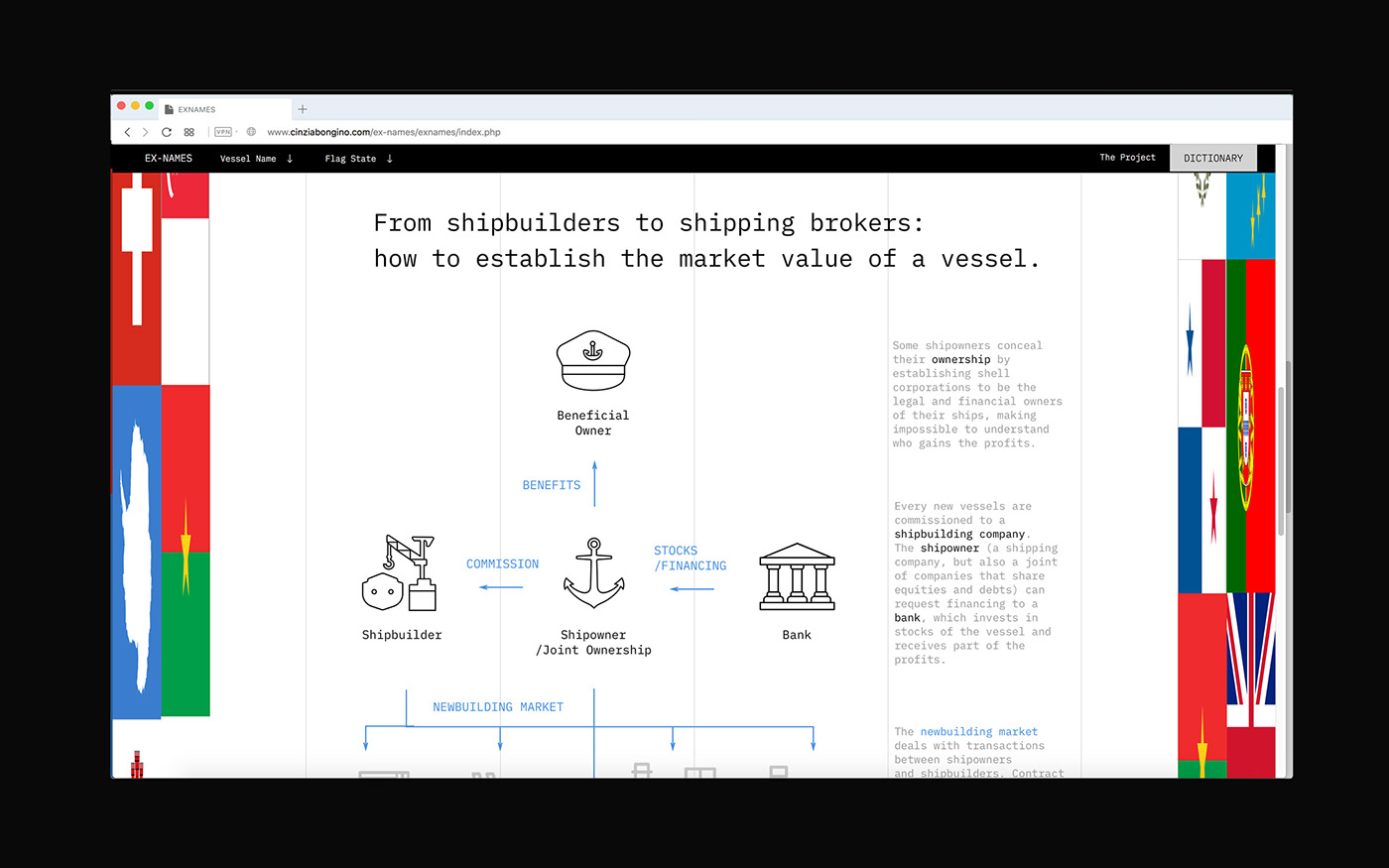
The change of the flag state can happen if the ship owner or manager decides to shift to another state, or if a ship is sold to another party which has a different flag state preference.
For changing it, various documents are submitted to the approaching flag state: the official entry into the new shipping register will happen only after the vessel has been deleted from the previous one. It’s a procedure that can take some hours like a few days, depending by the country's requirements.



In short, the more a ship changes names and register, the more has been purchased or leased, meaning a higher value in the shipping markets. Cargo ships and oil tankers are a very good investment nowadays.

A project by
Cinzia Bongino
Tutor
Henrik van Leuven
Design Academy Eindhoven,
Trimester 2 / March 2019

